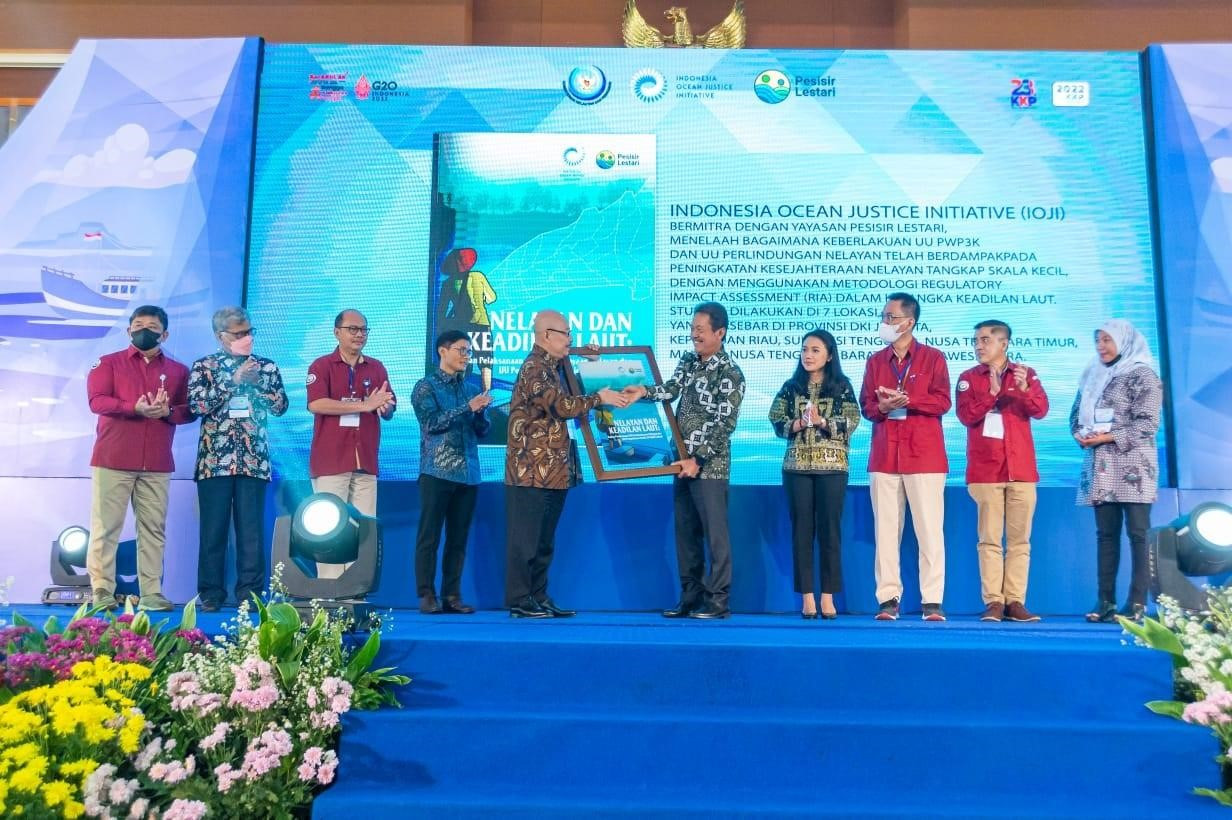Popular Reads
Top Results
Can't find what you're looking for?
View all search resultsPopular Reads
Top Results
Can't find what you're looking for?
View all search resultsGovernment protects local fishermen by improving the implementation of the relevant laws
To further protect local fishermen, Indonesia’s Ministry of Marine Affairs and Fisheries (MMAF) is prioritizing partnerships with relevant stakeholders.
Change text size
Gift Premium Articles
to Anyone
T
o further protect local fishermen, Indonesia’s Ministry of Marine Affairs and Fisheries (MMAF) is prioritizing partnerships with relevant stakeholders. The collaboration involves an assessment of the empowerment of fishermen and coastal management to strengthen its planned blue economy programs.
"The protection and empowerment of small fishermen have become a priority in every policy we make. The government cannot work alone. The coordination and collaboration of all stakeholders is the key to the success of marine and fisheries development," said Minister of Marine Affairs and Fisheries Sakti Wahyu Trenggono on Tuesday (11/10/2022).
Minister Trenggono officiated a newly developed cooperation program entitled “Synergy and Collaboration among Stakeholders for Equitable Prosperity of Small-Scale Fishermen and Sustainable Coastal Management” and launched a study on related subject conducted by the Indonesia Ocean Justice Initiative (IOJI) and the Pesisir Lestari Foundation.
The study is an impact assessment of the implementation of the Law on the Protection and Empowerment of Fishermen, Fish Farmers, and Salt Farmers (Law No. 7 of 2016) and the Law on Management of Coastal and Small islands (Law No. 27 of 2007 as lastly amended by Law No. 11 of 2020) in seven locations throughout the archipelago, namely Jakarta Capital Special Region, Riau Islands, Southeast Sulawesi, East Nusa Tenggara, West Nusa Tenggara, Maluku, and North Sulawesi Provinces.
"Based on the evaluation process as well as the results of a comprehensive study of the challenges and opportunities that exist, the ministry has prepared an all-time blue economy road map that is outlined in five main programs to ensure the sea remains healthy and to maintain the balance of marine nature for the survival of the next generation, as well as to create prosperity, especially for coastal communities and fishermen," the minister revealed.
Minister Trenggono also shared that the ministry is implementing the five blue economy programs to better the welfare of coastal communities and local fishermen. The programs were designed to maintain the sustainability of the fisheries ecosystem, including the preservation of mangrove areas, coral reefs, and seagrass beds. They include the expansion of marine conservation areas, quota-based scalable fishing/measured fisheries, the development of environmentally friendly aquaculture, governance of marine, coastal and small islands spatial planning, and marine debris elimination programs.
"The sustainable blue/ocean economy approach must be parallel and in harmony with the spirit of social and ecological justices," added Mas Achmad Santosa, the CEO of the IOJI, as he calls for the adoption of social and ecological justices in the Blue Economy programs, including the Measured Fisheries Policy, from the Ministry of Marine Affairs and Fisheries. He later continued, "Based on the results of this study, optimism is growing that we have done many things together, while at the same time there are still challenges and opportunities ahead to address and solve together."
To assess the Law on the Management of Coastal Areas and Small Islands and the Law on the Protection and Empowerment of Fishermen, Fish Farmers, and Salt Farmers, IOJI surveyed the implementation of the two laws in seven locations; Jakarta province, Riau Islands, Southeast Sulawesi, East Nusa Tenggara, West Nusa Tenggara, Maluku, and North Sulawesi.
“This study concludes that the effort to protect and sustain marine ecosystems is strongly interlinked with the effort to protect the rights of the coastal community in utilizing and managing the marine resources sustainably. By strengthening their access to participate in the policy development on marine management, we are increasing chances for coastal community to work with the government in realizing the mission of Law on Management of Coastal Areas and Small Islands,” added Maman, Director of Pesisir Lestari Foundation.
"We appreciate that the Minister reminds us about the danger we face in the current Anthropocene era (the period during which human activity has been the dominant influence on climate and the environment). The era is marked by the planetary crisis in the form of climate change and the extinction of biodiversity including marine biodiversity. The protection of the carrying capacity of marine ecosystems therefore needs to be strengthened and prioritized," Achmad concluded.










